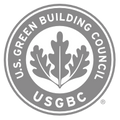Building codes are important for a number of reasons. Not the least of which is that failure to meet code can create a ton of headaches for you and your builder…. legal and liability issues, getting your insurance canceled, or having your home declared unfit for occupation to name a few.
So yes, we should understand and adhere to building codes. Unfortunately, it can be a confusing landscape so, with that in mind, we break down the basics in this week’s blog. (Please note this pertains to US building codes).
What Exactly Are Building Codes?
Building codes are a comprehensive, if not complex, set of regulations that mandate how we build, renovate and repair our built environment. The spirit of regulated building codes is to ensure safety and efficiency by imposing certain standards. Code can apply to almost all aspects of building.
At the highest level, there are two basic types of codes… model and adopted. Model codes are more like rules/best practices and not necessarily written into law unless they are adopted by a jurisdiction (city, state, etc). Adopted codes are what we’ll focus on in this post. These codes are adopted by a city or state and set standards that must be met.
As you can imagine, getting all stakeholders to agree about building codes can be a very tricky process. To solve for this, the International Code Council (ICC) was created in the mid ’90s to organize and publish building codes. The ICC has established I-Codes that address structural elements and electrical, plumbing, heating, ventilation, and air conditioning systems as well and energy conservation requirements.
A comprehensive list of the International Code Council (ICC) I-Codes
nternational Building Code (IBC)
International Energy Conservation Code (IECC)
International Existing Building Code (IEBC)
International Fire Code (IFC)
International Fuel Gas Code (IFGC)
International Green Construction Code (IgCC)
What codes do I need to know about for insulation?
Residential insulation codes fall under ICC’s International Energy Conservation Code (IECC). They update every three years and details on the 2021 IECC are now available. Note that ANSI/ASHRAE/IEC 90.1, is another important standard and as such some jurisdictions that haven’t adopted an edition of the IECC have adopted ANSI/ASHRAE/IEC 90.1. Regardless, understanding IECC is critical to building properly.
IECC does get adopted by most states and they then publish their individual provisions. This is where you can find out if your insulation meets codes. For example, the state of Massachusetts offers the below guidance which details R-Value and leakage specifications. As you can see the IECC code section is referenced.

Beyond just current code requirements, it’s also important to keep up to speed with changes in code requirements. What is code today can very well change and keeping up to speed with new advancements is crucial. Other codes pertaining to the building envelope, like air leakage, also are also becoming more advanced. Make sure to do your research and check with your builder that air leakage is being properly addressed.
You should always strive to meet code
Hopefully, this is a good start to understanding building codes here in the US. We may take issue with the logic, or lack thereof, of certain building codes but the overall goal is the safety and integrity of our built environment. Plus… increasingly codes are designed to increase the efficiency of buildings as well. Something that we all should believe in.





